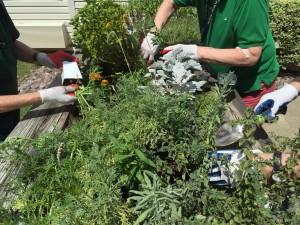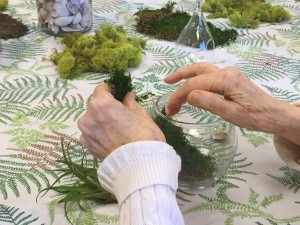For hundreds of years, home gardeners have realized that growing plants is good for you both physically and mentally. A story recently published in British tabloid The Guardian reports that many patients suffering with cancer, dementia and mental health problems can benefit from gardening. Doctors are more and more prescribing gardening for patients with cancer, dementia and mental health problems.
Outdoor spaces including gardens can reduce social isolation among older people as well as help patients recover and manage conditions such as dementia. GPs are advising some of their patients to spend more time outdoors to heighten their sense of well-being. The additional physical activity brings immediate payback and even promotes better sleep habits. It reduces social isolation and strengthens community bonds.
At a London clinic, a group of patients, doctors, nurses and local residents have created a network of food-growing gardens where patients learn how to grow food, which is then sold to the hospital to feed patients. A hospital in Salisbury designed special gardens which helped rehabilitate spinal injury patients. Outside spaces and gardens can serve to be important elements in improving end-of-life care, half of whom die in the hospital.
Dementia patients can benefit from being near a garden. One study reported a 19% reduction in violence in patients staying in garden sites; there was a seven-fold rise in violence in the non-garden sites during a year.
The therapeutic benefits of gardening don’t require taking lots of pills. Gardens can reduce levels of depression, loneliness, anxiety and stress, help improve older people’s balance, and benefit for a wide range of diagnoses including heart disease and obesity.
Credit: Photos courtesy of Susan Morgan, The Horticultural Link | thehorticulturallink.com | eatbreathegarden.com



 Posted in
Posted in 
